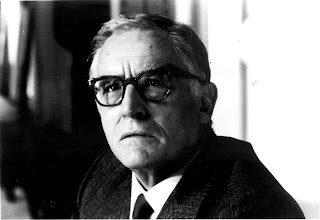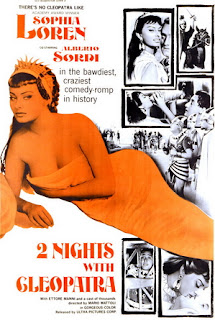It took me a while to
work out why I felt the death of Ettore Scola so intensely. Then it hit me that
it meant I’d never have the chance to talk to him. One of the keys to
understanding the greatest period in Italian film was gone forever. Scola was pretty much the founder member of the cycle that would include Pupi Avati, Gianni Amelio Giuseppe Tornatore and Gabriele Salvatores.
In fact his career preceded theirs and went back into the fifties, with a swathe of A
features that we saw before we were aware of Scola himself - Albert Sordi Spending two nights with Sophia Loren’s Cleopatra and the rest. The films became more ambitious Adua e la Compagna (Antonio Pietrangeli, 1960), Il Sorpasso (Dino Risi,1962),
The March on Rome (Dino Risi,1962) and the famous faces of Italian
and European cinema peered out of them at us - Mastroianni, Simone Signoret,
Jean Louis Trintignant and Nino Manfredi but most often it was the grotesques
of Vittorio Gassman, a tendency accelerated when Scola’s name moved from the
writer panel to director with 1964’s Se permettete parliamo di donne. understanding the greatest period in Italian film was gone forever. Scola was pretty much the founder member of the cycle that would include Pupi Avati, Gianni Amelio Giuseppe Tornatore and Gabriele Salvatores.
In fact his career preceded theirs and went back into the fifties, with a swathe of A
features that we saw before we were aware of Scola himself - Albert Sordi Spending two nights with Sophia Loren’s Cleopatra and the rest. The films became more ambitious Adua e la Compagna (Antonio Pietrangeli, 1960), Il Sorpasso (Dino Risi,1962),
The films were also more often shown to us - dubbed circuit releases, Italian film weeks and regular outings on SBS, which seemed to have some deal with his producer. Mind you there was nothing remarkable about The Gaucho (Dino Risi, 1964), Devil in Love/L'arcidiavolo (1966) and Riusciranno i nostri eroi a ritrovare l'amico misteriosamente scomparso in Africa? (1968) though they were good performers on their home turf.
But curiously, beginning with Permette? Rocco Papaleo (1968), elements with more resonance than the production line Italian comedy crept into the director’s work. The dramatized documentary Trevico-Torino (1973) was followed by his first genuine masterpiece, the 1974 Cerevamo tanto amati/ We All Loved Each Other, where his stellar cast - mastheaded by Gassman, Manfredi & Stefania Sandrelli - age over the post WW2 decades.
 |
| Vittorio Gassman in L'arcidiavolo |
1980’s La Terazza looked like a talk bound society drama until we noticed the impossible time structure. 1981’s disturbing Passione d’amore with Bernard Giraudeau & Trintignant, the 1982 La Nuit de Varennes put a dream cast in the coach - Jean Louis Barrault, French speaking Harvey Keitel as Tom Paine, Mastroianni as Casanova, Hanna Schygulla, Jean-Louis Trintignant, the non verbal 1983 Le Bal. These all did front and center art movie business but that didn’t last.
 |
| La Famiglia |
Macaroni. A couple of years later we got the impressive La Famiglia (1987) followed by Mastroianni in Splendor (1989) and Scola’s so beautiful, best ever Captain Fracassa (1990). The hits kept coming but they were wider spaced and nobody seemed to notice Albatuanto, Depardieu and Sergio Castellito in Concorrenza sleale/Unfair Competition in 2010.
Scola’s final production was a tribute to Fellini who had once been a fellow newspaper cartoonist and figures as a character in C’erevamo Tanto amato. We could see the same acid observation mixed with the warmth of the fiction films.
Scola looked like the total establishment director, working with star actors in studio
filmed vehicles, until you notice the daring departures from form of his work on La
Terazza, Le Bal or the barely fictional Trevico Torino or Genti de Roma. How about
aging La Famiglia’s character by cutting back to Gassmann in the same seat in the same clothes as the younger actor in the middle of the scene?
I can only hope the Italians sent him off big. His passing barely got an English language mention. Don’t hold your breath for a retrospective.


The Sydney Morning Herald had a postage stamp sized mention on its obit page yesterday, five months after the master's death. What a slovenly disgraceful newspaper it has become
ReplyDeletehttps://1celebritiesbiographies.blogspot.com/2017/12/ettore-scola-1931-2016.html
ReplyDelete